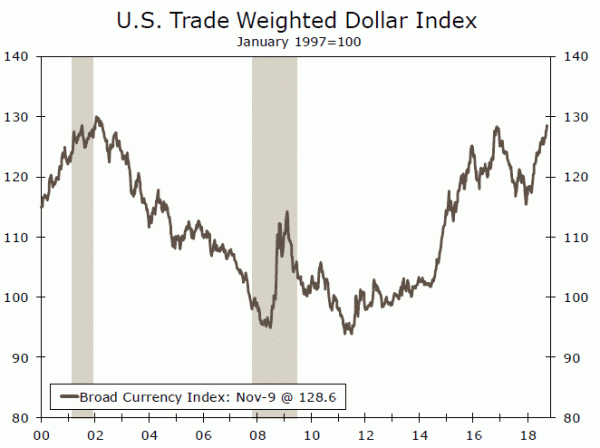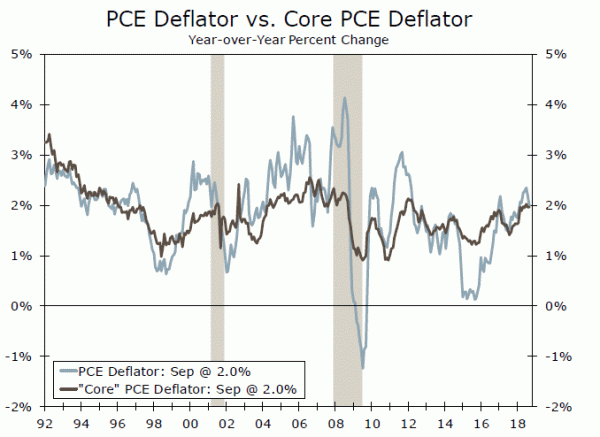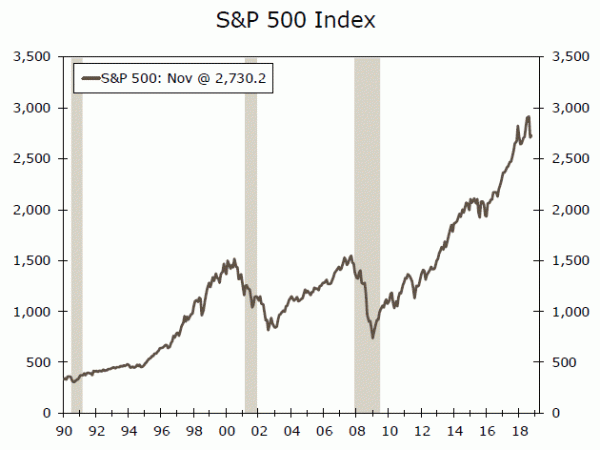The stock market has weakened recently and oil prices have moved lower. Unless the core rate of inflation recedes, however, the Fed will probably tighten further, at least in the foreseeable future.
How Much Attention Does the Fed Pay to Oil and Stocks?
There have been two developments recently that could lead some observers to question how much more tightening the Fed actually will deliver. First, will the Federal Open Market Committee (FOMC) hike further if the stock market goes further south?
FOMC policymakers do not care much about the stock market, per se. Rather, the Federal Reserve has two objectives: “full employment” and “price stability.” To the extent that the value of the stock market affects those two variables, then the FOMC may change course. But as of this writing, the S&P 500 index is down only 7% or so from its peak in September (top chart). In our view, the decline in the stock market to date is not large enough to have a meaningful effect on the Fed’s two primary objectives. In other words, the FOMC probably won’t deviate from its publicly communicated tightening path, unless the downdraft in the stock market becomes much deeper.
Of arguably more importance is the recent decline in oil prices. (The price of West Texas Intermediate is down about 25% since early October.) This significant decline in oil prices likely will pull the overall rate of consumer price inflation lower in coming months which, conceivably, could threaten the Fed’s objective of “price stability.” (The Fed prefers to measure consumer price inflation using the PCE deflator rather than the consumer price index.)
In our view, however, the FOMC is likely to look through any near-term decline in the overall rate of PCE inflation. Unless the recent swoon in oil prices pulls down the core rate of PCE inflation, which excludes food and energy prices, then the FOMC will probably continue to hike rates, albeit at a gradual rate.
The core PCE inflation rate followed the overall PCE inflation rate lower in 2015-2016 after the collapse in oil prices (middle chart). However, there are reasons to expect that the core rate of inflation won’t respond as much this time around. First, oil prices nosedived about 80% between mid-2014 and early 2016. As noted above, the decline in oil prices since September has been much less extreme. Second, the sharp rise in the value of the dollar, which appreciated roughly 30% in trade-weighted terms during the previous episode, helped depress non-petroleum import prices. The dollar is up this year, but only by a bit more than 10% since its low in January (bottom chart). Third, tariffs could give some near-term boost to consumer prices. Finally, the labor market today is much tighter than it was three years ago, which has led to some wage acceleration. Unless the core PCE inflation rate recedes, the FOMC likely will continue on its path of gradual tightening, at least for the foreseeable future.



